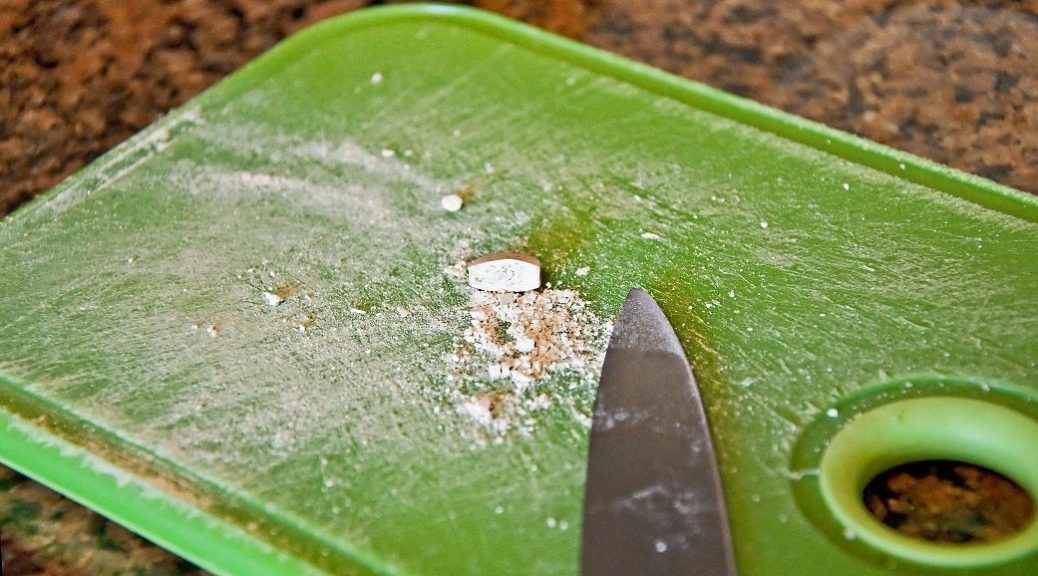- Home
- Product
- Patient
- Order Online
- Prescription Quote
- What is a Compounding Pharmacy?
- Collect at your Pharmacy
- Find a Pharmacy
- Find a Integrative Doctor
- Child Friendly Medication
- Vet & Animal Compounding
- Easy to Swallow Pills
- Motion & Seasickness
- Medication without the Additives
- Unavailable Medications
- Schedule 8 Shipping Waiver
- Pharmacists
- Prescribers
- Shop
- FAQs
- About
- Careers
- Contact Us
- Home
- Product
- Patient
- Order Online
- Prescription Quote
- What is a Compounding Pharmacy?
- Collect at your Pharmacy
- Find a Pharmacy
- Find a Integrative Doctor
- Child Friendly Medication
- Vet & Animal Compounding
- Easy to Swallow Pills
- Motion & Seasickness
- Medication without the Additives
- Unavailable Medications
- Schedule 8 Shipping Waiver
- Pharmacists
- Prescribers
- Shop
- FAQs
- About
- Careers
- Contact Us
NEW STUDY: Nearly a quarter of drugs lost when pills are crushed

Nearly a quarter of a drug can be lost when pills are crushed to allow for easier swallowing according to a new study conducted by a team of pharmacy researchers.
The team from the University of Queensland, studied 24 pill-crushing devices commonly used in nursing homes and hospitals for patients who have difficulty swallowing pills. The research found that 18 of the crushers recorded significant losses – up to 24{648ff2b140dd79f8b10f01740237e66061b7c0f8b396ba52d99047c684c8722c} – in the medication with hand-twist crushers containing a serrated crushing surface the worst offenders. Some devices with disposable bags or cups also recorded significant losses.
The research, published in PLOS, found that rinsing the device, not once, but twice, could reclaim some of the lost medicine, however the authors noted that this was not always practical in health care facilities with limited staff on tight schedules.
The report also drew attention to the risk of contamination of medicines when using pill-crushing devices: “Crushing devices are often shared between patients, and without cleaning, in nursing homes and hospitals. Even with careful crushing and transferring using porcelain mortar and pestle, our study shows that approximately 3{648ff2b140dd79f8b10f01740237e66061b7c0f8b396ba52d99047c684c8722c} of drug was left in the crushing device and can potentially transfer to the next patient if not cleaned between administrations.”
Aerolization that occurs when pills are crushed, especially when using a mortar and pestle, was another area of concern for the researchers: “Aerosolization during crushing and transfer may expose the carers or nurses to allergic reaction or even toxic inhalation especially when crushing chemotherapy drugs”.
The US Food and Drug Administration recommends less than 3.0{648ff2b140dd79f8b10f01740237e66061b7c0f8b396ba52d99047c684c8722c} mass loss should occur when a medication is subdivided (crushed). The University of Queensland study found that 19 of the 24 devices studied would not meet these guidelines.
The authors of the research paper concluded that, “healthcare professionals and patients need to recognise that tablet crushing can result in significant drug loss.”
Matthew Bellgrove from National Custom Compounding on the Gold Coast said that his pharmacy regularly helped patients who had difficulty swallowing pills by making up their exact medication in easy-to-swallow liquid form.
“Compounding pharmacists have long been aware that some loss of medication can occur when pills are crushed – especially when the operation is performed on a kitchen bench using the back of a spoon or knife,” Mr Bellgrove said, “Yet some medial professionals still advise patients to do this.”
“The much safer option is to use the services of a fully qualified and reputable compounding pharmacist who will make up your medication in a liquid form. Then you can accurately measure your doses and know you’re getting the exact amount prescribed – no guesswork and no under-dosing leading to negative health outcomes.”
With a script from a doctor, National Custom Compounding can make up liquid compounds of medication that allow for easier measuring and swallowing. For more information call National Custom Compounding on 1300 731 755.
Citation: Thong MY, Manrique YJ, Steadman KJ (2018) Drug loss while crushing tablets: Comparison of 24 tablet crushing devices. PLoS ONE 13(3): e0193683. https://doi.org/10.1371/journal.pone.0193683
